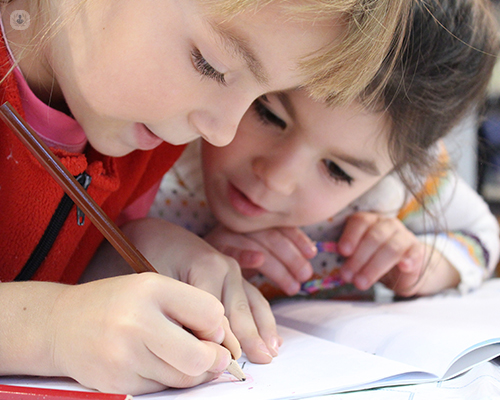However, children perceive their surroundings differently from adults. Blurred vision, lack of spatial vision, or similar visual disturbances are perceived by children as "normal" because they cannot make a comparison with corrected vision. This is compounded by the fact that younger children are usually unable to provide information about their actual vision.
Therefore, especially in these individuals, it is extremely important to recognize and treat any eye diseases and vision changes early.
Decreased vision , strabismus, headaches, difficulty concentrating and learning, and uncertainty during movement and walking can be common symptoms during childhood but at the same time be issues related to a variety of eye diseases and visual function. Early use of tablet or TV or PC screens for playing or studying can sometimes cause vision problems in toddlers. Not being able to focus well on images and objects can be a serious problem.
Visual defects such ashypermetropia, myopia, astigmatism, strabismus and amblyopia, eye movement disorders, nystagmus and other organic eye diseases must necessarily be diagnosed and treated in pediatric and pre-adolescent age, as vision problems that are underestimated and neglected can, over time, worsen and lead to serious and sometimes irreversible vision problems.
When is it appropriate for children to have their first eye examination?
It is very important to make an examination in the first months of life in cases of congenital eye diseases of parents or when parents notice problems with their children's eyes(frequent redness, squinting, abnormal discharge, etc.).
In the early years of kindergarten, it is important to monitor children's behavior, whether they get too close to their notebooks or see less out of one eye than the other (lazy eye).
Follow-up should be checked at school age, such as when they start reading if they get too close to the book or complain of not seeing the blackboard, tilt their head too much, or complain of excessive light intensity. Headaches are also often a symptom of vision problems.
The earlier visual defects are detected by the ophthalmologist, the better the success of treatment, especially in childhood. Since visual defects, particularly unilateral ones, in children are sometimes detected too late, it is advisable to have them routinely examined by an ophthalmologist, that is, even in the absence of actual symptoms, so that if there is any doubt even this type of eye disease can be diagnosed early and treated.
At Life Clinic's eye care center, all necessary examinations can be performed to prevent and treat in time any visual and behavioral disorders that may affect children's good vision.
An eye examination is not painful and is important for all children in their developmental stage.
